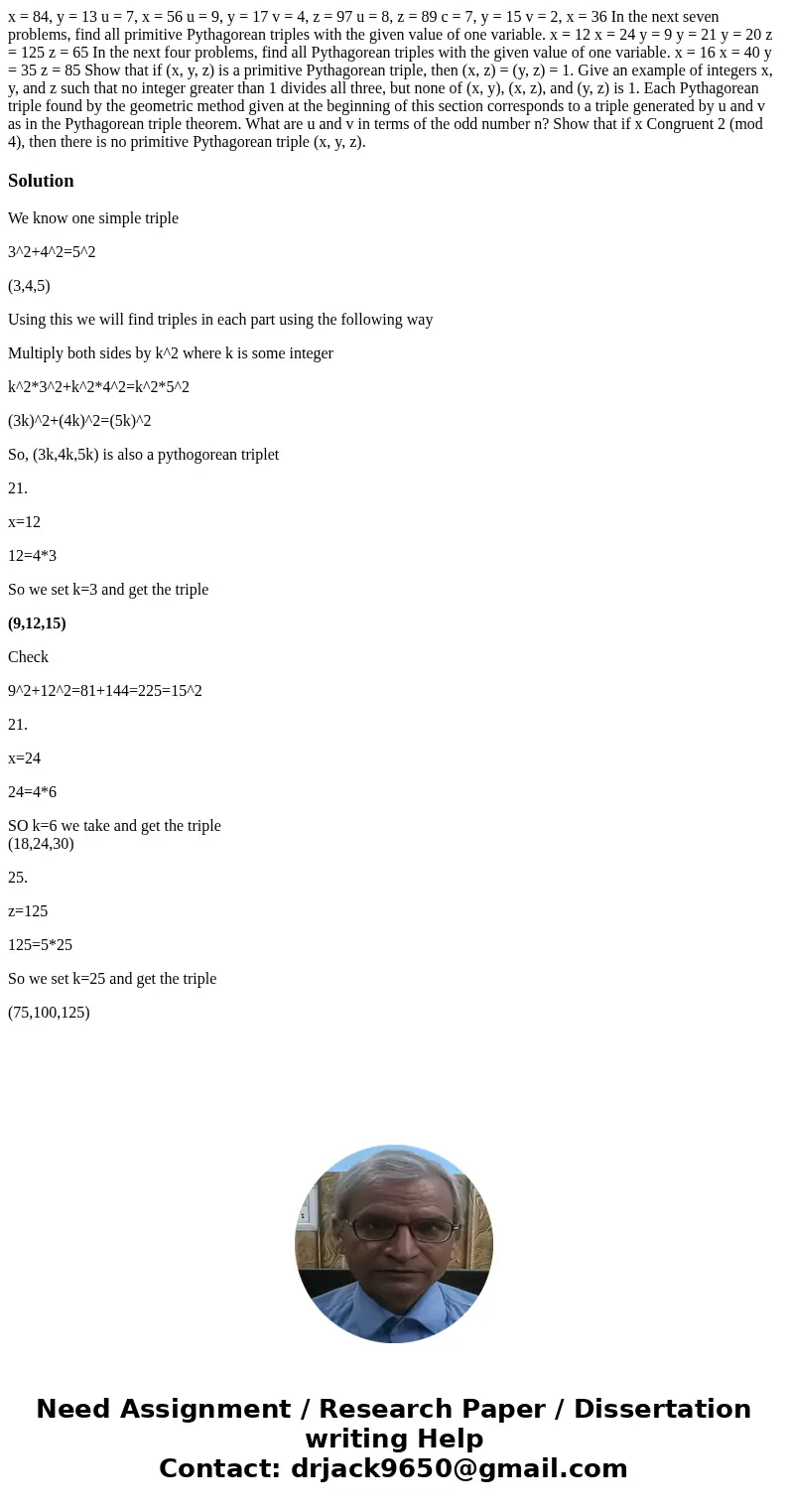x 84 y 13 u 7 x 56 u 9 y 17 v 4 z 97 u 8 z 89 c 7
x = 84, y = 13 u = 7, x = 56 u = 9, y = 17 v = 4, z = 97 u = 8, z = 89 c = 7, y = 15 v = 2, x = 36 In the next seven problems, find all primitive Pythagorean triples with the given value of one variable. x = 12 x = 24 y = 9 y = 21 y = 20 z = 125 z = 65 In the next four problems, find all Pythagorean triples with the given value of one variable. x = 16 x = 40 y = 35 z = 85 Show that if (x, y, z) is a primitive Pythagorean triple, then (x, z) = (y, z) = 1. Give an example of integers x, y, and z such that no integer greater than 1 divides all three, but none of (x, y), (x, z), and (y, z) is 1. Each Pythagorean triple found by the geometric method given at the beginning of this section corresponds to a triple generated by u and v as in the Pythagorean triple theorem. What are u and v in terms of the odd number n? Show that if x Congruent 2 (mod 4), then there is no primitive Pythagorean triple (x, y, z).
Solution
We know one simple triple
3^2+4^2=5^2
(3,4,5)
Using this we will find triples in each part using the following way
Multiply both sides by k^2 where k is some integer
k^2*3^2+k^2*4^2=k^2*5^2
(3k)^2+(4k)^2=(5k)^2
So, (3k,4k,5k) is also a pythogorean triplet
21.
x=12
12=4*3
So we set k=3 and get the triple
(9,12,15)
Check
9^2+12^2=81+144=225=15^2
21.
x=24
24=4*6
SO k=6 we take and get the triple
(18,24,30)
25.
z=125
125=5*25
So we set k=25 and get the triple
(75,100,125)

 Homework Sourse
Homework Sourse